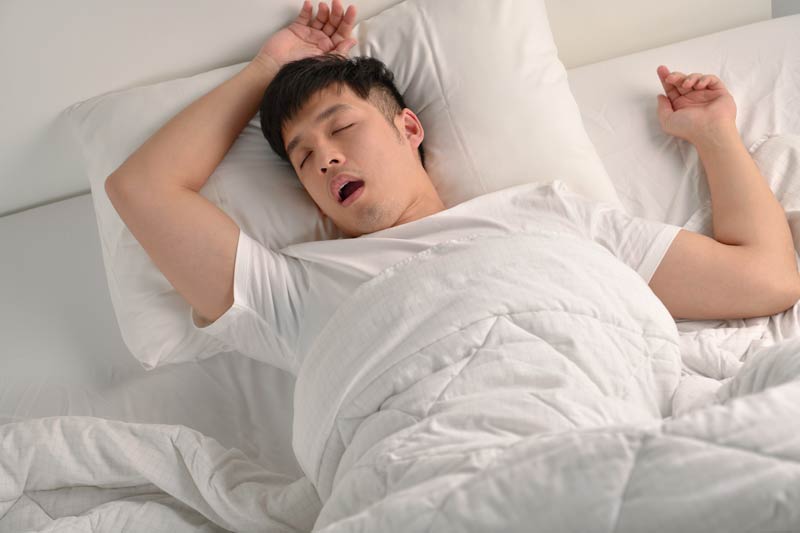
Are you among the many Americans troubled by snoring? Snoring is a prevalent issue affecting nearly 25% of the population, but it can also be a warning sign of sleep apnea, a condition that can lead to serious health consequences if not addressed.
It’s crucial to distinguish between snoring and sleep apnea.
Snoring vs. Sleep Apnea
Snoring results from the movement of loose tissue and structures in the throat as air passes over them during sleep. While it may disrupt your rest, snoring by itself rarely causes significant health problems. You might experience a dry mouth, sore throat, or some fatigue upon waking up.
On the other hand, sleep apnea involves temporary blockage of the airway during sleep, causing you to stop breathing for short periods. This occurs due to involuntary relaxation of throat muscles. Snoring is often the initial symptom of sleep apnea, followed by choking or gasping as the body tries to clear the airway. Left untreated, sleep apnea can have severe effects on your health and well-being, including:
- High blood pressure: Repeated breathing interruptions during the night can lead to hypertension.
- Cardiovascular disease: Untreated sleep apnea increases the risk of heart disease, irregular heart rhythms, and stroke.
- Type 2 diabetes: Sleep apnea is linked to insulin resistance and an increased risk of type 2 diabetes.
- Daytime sleepiness: Sleep apnea can cause excessive daytime sleepiness, affecting concentration, memory, and causing accidents.
- Weight gain: Disrupted metabolism from sleep apnea can make it challenging to lose weight and may lead to weight gain.
- Headaches: Morning headaches may result from poor sleep quality due to sleep apnea

What Steps Can I Take to alleviate Symptoms of Sleep Apnea?
If you frequently snore or suspect you have sleep apnea, you can take steps to alleviate symptoms. Maintaining a healthy weight and diet can strengthen throat muscles, while avoiding alcohol and smoking promotes a healthy airway.
However, a formal diagnosis through a polysomnogram or “sleep study” conducted in a sleep lab or through an at-home sleep test is the most accurate way to confirm sleep apnea. Given the potential for severe health effects if untreated, seeking medical attention if you suspect sleep apnea is essential.
At Texas ENT & Allergy, our team of experts can help diagnose and treat sleep apnea. Contact us today to schedule a consultation and take the first step towards better sleep and better health.



